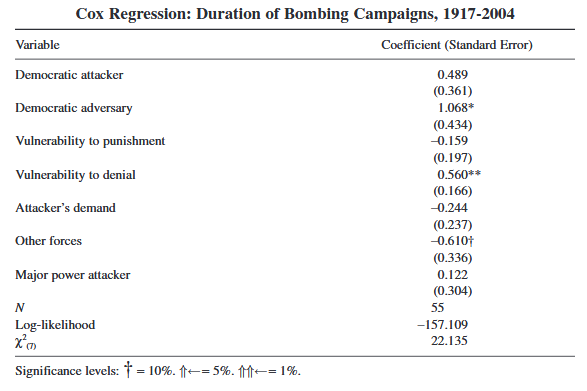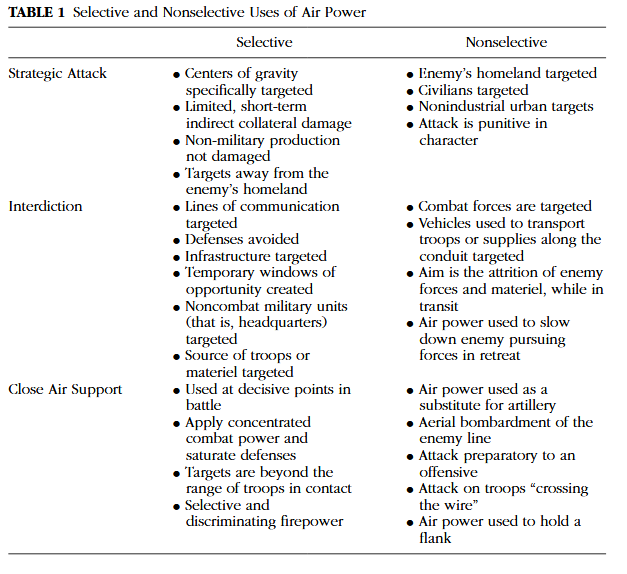What say the data?
[THREAD]
books.google.com/books?id=xHZnT…

tandfonline.com/doi/abs/10.108…
tandfonline.com/doi/abs/10.108…
journals.sagepub.com/doi/abs/10.117…
journals.sagepub.com/doi/abs/10.117…

tandfonline.com/doi/abs/10.108…

journals.sagepub.com/doi/abs/10.117…
journals.sagepub.com/doi/abs/10.117…
journals.sagepub.com/doi/abs/10.117…
First, Pape's original finding -- say NO to STRATEGIC BOMBING -- seems to hold up well.
Second, airpower alone won't do much. It needs to be coupled with ground troops. THAT is probably not a palpable option for resolving the current 🇺🇸v🇮🇷 crisis!
[END]














